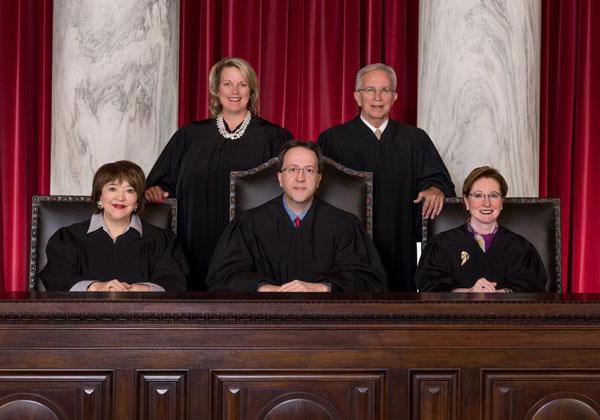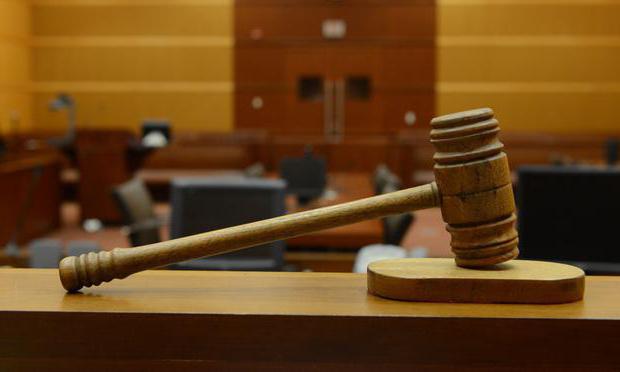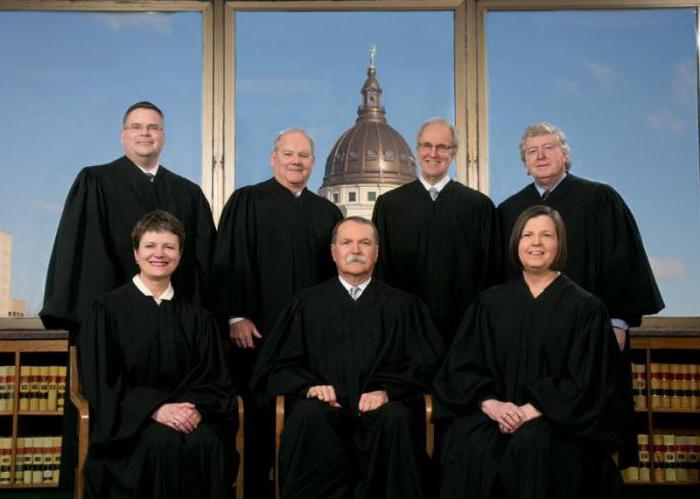In absentia proceedings in a civil process is designed to save court time and other process participants if the defendant does not appear in court. It has its own characteristics, from time to time in the practice of applying these standards, difficulties and problems arise.
What is it
In absentia proceedings in a civil process is an institution of legislation created to expedite the consideration of cases when the defendant does not appear. There is still debate in science whether these norms are a form of simplified production or not.
The transition to an absentee review is provided only in the order of action proceedings. It is not necessary that the process ends with an absentee decision. The significance of this institution is to solve the problem of non-appearance of defendants. Interestingly, judges do not always use the norms discussed for objective and subjective reasons.

No concept of absentee proceedings in the civil process is given, all definitions are purely scientific in nature. However, the existing legislation is enough to understand their essence.
Legislation
Part-time proceedings in the civil process are devoted to chapter 22 of the Code of Civil Procedure. It describes:
- the conditions for the transfer of consideration to extramural proceedings, restrictions on the application of this order;
- principles for considering gathering and examining evidence;
- features of issuing an absentee decision;
- Rules of appeal of an act issued in absentia.
Production stages
Conventionally, the procedure can be divided into two stages:
- the actual consideration of the case;
- consideration of the application for the abolition of the judicial act.
The question of cancellation is considered by the same judge. It should be noted that, despite the similarity with the appeal review, the cancellation procedure is not such. The law clearly separates the process of canceling an absentee decision and appeal.
Transition Terms
A judge has the right to hold a meeting without the participation of a second party, but it is limited by a number of provisions of the law:
- there must be evidence of notification of the defendant about the time of the meeting;
- the defendant did not ask to postpone the meeting and did not substantiate the validity of the failure to appear;
- in cases with several defendants, everyone should ignore the meeting, if at least one has appeared, absentee proceedings are impossible;
- the plaintiff agreed to a simplified procedure proposed by the court, or he himself filed a corresponding application.
All of the above grounds for absentee proceedings in a civil process must be present simultaneously.

Changing the subject or basis of the claim, changing the size of the claims is not possible in absentia.
If the defendant ensured the presence of his representative in the court, then the judge cannot apply the consequences of his failure to appear.
If the plaintiff did not appear, the judge also has no right to consider the case in absentia.
If the court ignored the plaintiff’s refusal to proceed to an absentee review, then this is considered a serious violation of the procedural rules of law.
Decision procedure
Like any other intermediate action of the court, the transition to the discussed procedure is made out by definition. A separate document may be executed as well as a note on the court decision in the minutes of the meeting.
Conditions for notifying a defendant of a new meeting
If the plaintiff for some reason does not agree to the consideration of the case without the defendant, the judge postpones the meeting and appoints a new one. The subpoena is transmitted either through the plaintiff or by mail.If the subpoena is transmitted through someone else, it is important that the defendant or a member of his family sign the notice, which is then attached to the case file. Without a receipt, receipt of the summons is considered invalid.
Evidence gathering
How is evidence provided? Some of them are attached to the claim even when it is submitted, and the judge remains to verify the copies of the documents with the originals. If the plaintiff is unable to obtain them for objective reasons without the help of the court, a petition is submitted indicating why court intervention is required.

The satisfaction by the court of the request for petitions for the demand for evidence, the appointment of an examination gives the right to postpone the hearing. The defendant is sent a summons stating that the meeting is adjourned.
The procedure for absentee proceedings in the civil process
The procedure for absentee proceedings is applied by judges only if there is the full amount of evidence that is needed to resolve the dispute. The demand for evidence by the court and the appointment of an examination are also allowed in a lawsuit in the absence of the defendant.

If the court nevertheless decided to hold the meeting in absentia, then all issues with the demand for evidence and the appointment of expertise are resolved in a general manner.
Until the expert conclusions and materials requested are received, the meeting is adjourned.
If the defendant appears at the next meeting, the case will be considered in the usual manner. This point, it must be said, is not regulated by law, so the judges try to avoid such a situation, and act only when they are fully confident.
Solution Features
The final act based on the results of the consideration of the case shall be issued in a general manner. The judge leaves the meeting room and goes to the deliberation room.

Coming out of there, he announces his decision. It so happened, the introductory and resolutory parts are announced. A complete decision with a motivation part shall be issued no later than 3 days later. In fact, it takes more time to get a complete solution.
As for the defendant, a copy of the full decision is sent to him. Since the appeal period is counted from the moment it is received, the defendant is in a better position than the plaintiff.
A feature of the absentee decision is the description in the operative part of the procedure for canceling the absentee decision, the possibility of appealing it on appeal if the deadline for cancellation by the court that made this decision is missed.
Cancellation and appeal dates
The defendant has the right to request the annulment of the decision in absentia, the legislator has not granted the plaintiff such a right.

The application for cancellation is submitted no later than 7 days after receiving the full decision. Procedural periods in absentee proceedings in the civil process are not restored.
The deadline for an appeal begins after the 7-day deadline for filing an application to reverse the decision of the judge who made it.
Cancellation Policy
It is submitted to the same judge, to the same court. Content Items:
- name of court;
- case number;
- facts confirming the validity of the defendant’s failure to appear;
- evidence and facts that could affect the opinion of the court if provided timely;
- request for cancellation of the decision;
- F. I. About the applicant, his signature.
State duty application is not paid. The number of copies is supplied according to the number of participants in the process.
The application is essentially considered in the presence of the parties, the judge either leaves the decision unchanged or agrees with it. The following provides a transition to the consideration of the dispute in a general manner.
If the decision is made a second time in absentia, the application for cancellation is not submitted again. Then it remains only to file a complaint on appeal.
The right of cancellation is granted so that the defendant has the opportunity to state his position, which can be truly substantiated.
What difficulties arise
The problems of absentee proceedings in the civil process are as follows:
- the waiting period for the plaintiff increases if he does not agree with the decision;
- the work of the postal service does not fully guarantee the receipt of a copy of the claim and the attached materials by the defendant;
- poor performance of the mail delays the entry into force of the judgment;
- there is no clear list of good reasons for missing a meeting or their criteria.
Judicial practice has developed an approximate list of circumstances that caused the failure to appear. In addition, judges have different views on the same arguments and even recommendations of the Supreme Court.

Providing the court with convincing evidence in favor of the cancellation of the decision, and without justifying, in the court's opinion, the validity of his absence at the meetings that preceded the decision, the defendant cannot count on the cancellation of the default decision.
This provision is not entirely correct, because the appeal, having accepted this evidence, can cancel the decision. True, they will also have to justify the validity of their absence. However, the view of a higher authority may be different.
Despite the obligation of the judges to explain in the text of the decision the procedure for canceling an absentee decision and appealing it in an appeal, this is done incorrectly. As a result, confusion is created, and people lose time and send statements or complaints that are not in accordance with the law. Thus, obstacles are created in the exercise of their rights.
All these problems reduce the importance of absentee proceedings in the civil process.
Correlation of correspondence and order proceedings
Order and correspondence proceedings in the civil process, what is the difference between them? A court order is a separate, full-fledged form of adoption of judicial acts. It is provided for the category of cases included in the exhaustive list in Art. 122 GIC.
All cases of writ proceedings - applications for the recovery of funds.
Their peculiarity is that they are accepted in the absence of parties. The judge decides solely on the basis of the materials provided by the plaintiff.
Claiming additional evidence or explanations from the parties by the court is also completely excluded, even if evidence cannot be provided for valid reasons.
Order proceedings, unlike in absentia, are mandatory; the opinion of the court or the parties does not matter for its conduct.
If it is evident from the materials that the issuance of the order will be denied, the applicant should still apply to the court for his issuance. Only after receiving a refusal does the right to file a full claim arise.
An absentee proceeding is based on a lawsuit; an order is based on an application for issuing an order; the requirements of the law for them are somewhat different. If absentee proceedings can go into the standard lawsuit, then order production is a completely separate procedure.
A court order is simultaneously an executive document, after the entry into force of a judicial act adopted in absentia, it is required to apply for a writ of execution.
Conclusion
Thus, absentee proceedings are a form of action, whether to apply it or not, depends on the consent of the plaintiff, and the conditions must be met, and it can be applied in absolutely any dispute.
In general, the conditions of absentee proceedings in the civil process are able to ensure a quality review of the case by an unbiased judge.